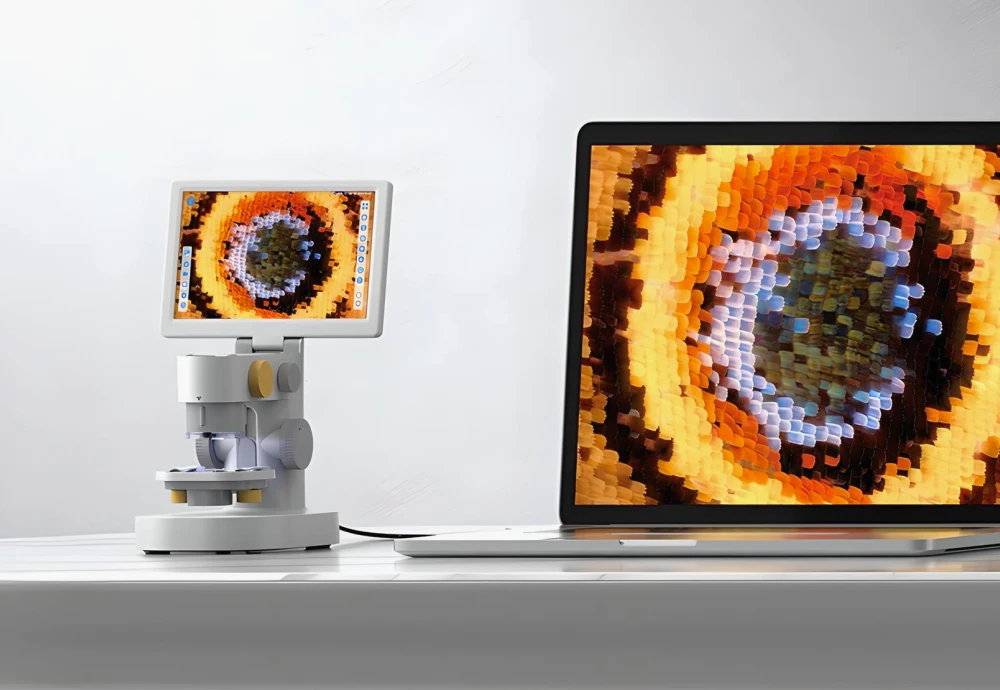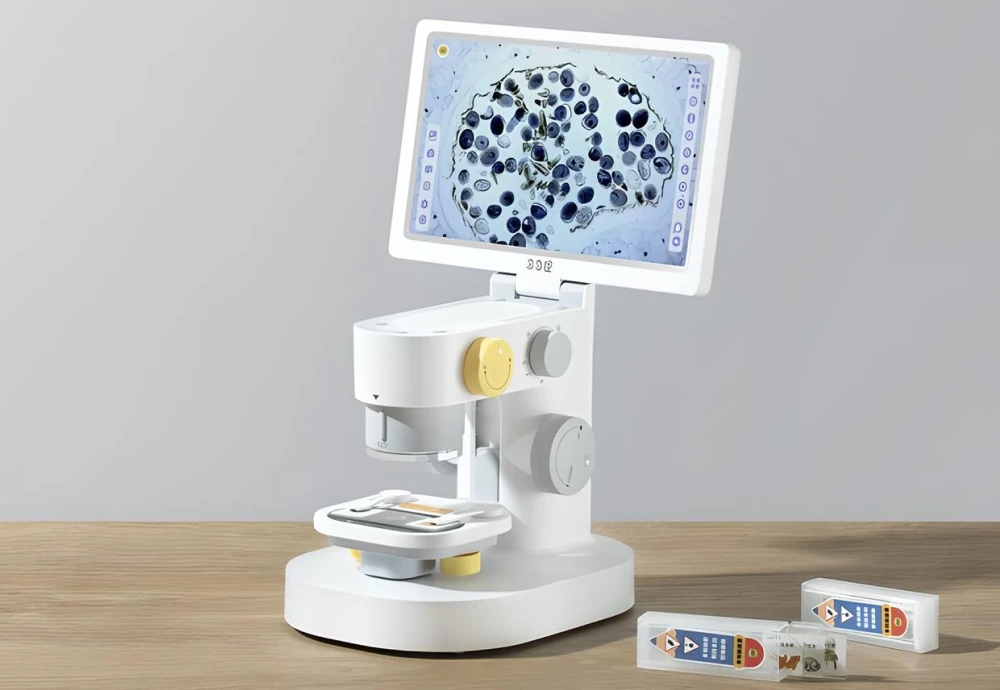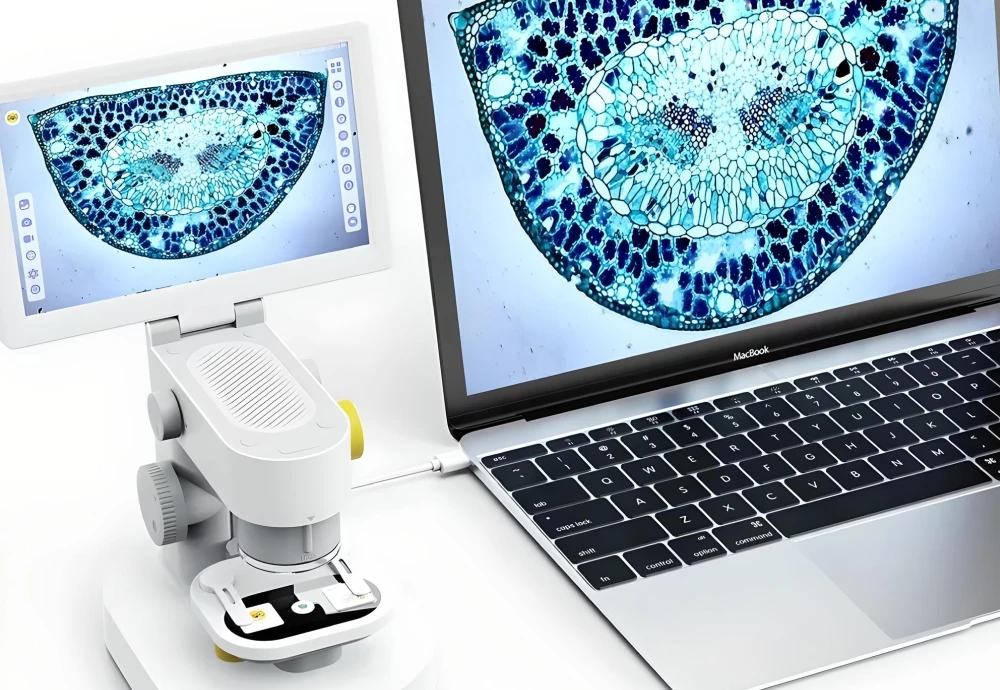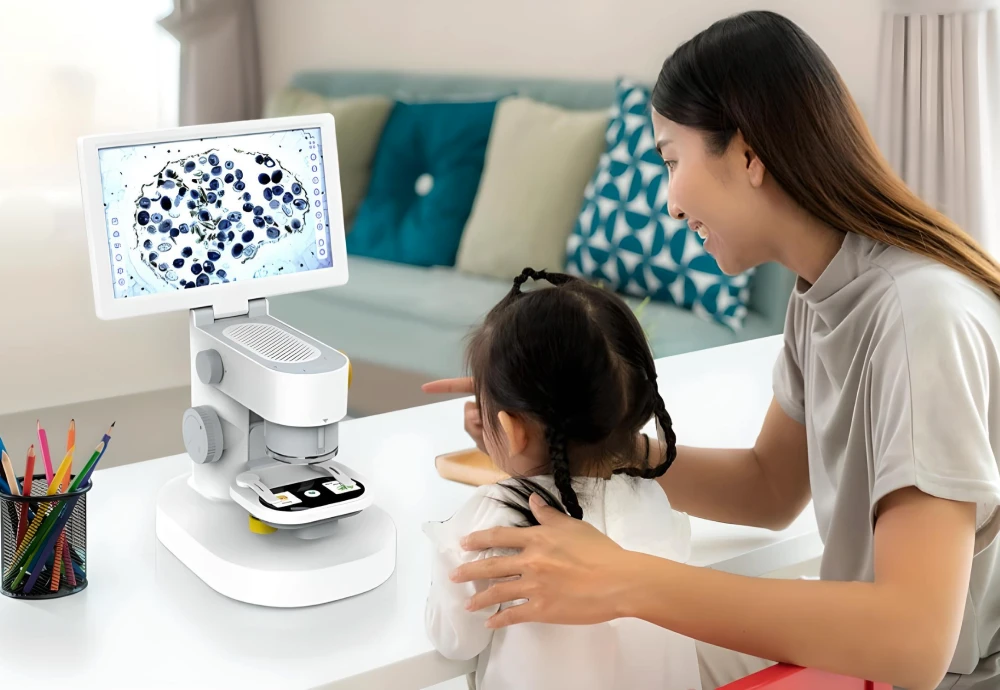Demystifying the Magic: How Does a Digital Microscope Work?

If you’ve ever wondered ‘how does a digital microscope work?’, then this article is for you. We’ll delve into the mechanics behind these high-tech devices and highlight some key points that set them apart from their traditional counterparts.
The Science Behind Digital Microscopes

The heart of any digital microscope lies in its image sensor, which captures detailed images with precision accuracy. These sensors are akin to those found in cameras but are tuned specifically for microscopic imaging.
Digital microscopes also incorporate built-in LED lights to illuminate specimens. This light source is crucial because it allows users to see fine details that would otherwise be invisible.
Taking Advantage of 1200X Touchscreen Digital Microscope’s Features
1200X Touchscreen Digital Microscope with Triple Camera, stands out among other options due to its triple camera system – an innovative feature that provides multiple viewing angles simultaneously.
This device offers crystal clear magnification up to 1200 times, making it ideal for both professional and educational use. It has an intuitive touchscreen interface allowing easy navigation through samples while providing real-time visuals on its high-resolution screen.
Making Your Experience More Efficient
To get more from your microscopy sessions, consider investing in additional accessories such as slides or petri dishes suitable for holding various specimens. Regularly cleaning your microscope will also ensure optimal performance and longevity.
Another important aspect is learning to adjust the focus and light intensity properly, as these factors greatly influence image quality. The 1200X Touchscreen Digital Microscope makes this process simple with easy-to-use controls.
Trends in Digital Microscopy
The world of microscopy continues to evolve, with digital microscopes becoming increasingly popular due to their versatility and ease of use. These devices are now being used not just in laboratories but also in classrooms, art studios, and even at home for personal projects or hobbies.
Digital vs Traditional: Understanding How a Digital Microscope Works

While traditional optical microscopes have served us well for centuries, digital versions offer several advantages. They provide immediate visual feedback on high-resolution screens, allow images to be saved directly onto computers for further analysis or sharing online – features that make them an excellent choice for modern users.
1200X Touchscreen Digital Microscope, takes these benefits even further by offering a triple camera system that provides multiple viewing angles simultaneously.
Embracing the Digital Age: How Does a Digital Microscope Work
Digital microscopes are designed to be user-friendly and convenient. They eliminate the need for eyepieces, which can cause eye strain over prolonged use. Instead, they display magnified images directly on a built-in screen or connected device like a computer or tablet.
The 1200X Touchscreen Digital Microscope takes this convenience further by offering an intuitive touchscreen interface that allows you to navigate your samples with ease.
Enhancing Your View: The Role of Software in Digital Microscopy
Digital microscopy is not just about hardware; software plays an equally important role. Advanced software enables various features such as image capture, video recording, measurement functions, and more. This adds another layer of functionality to digital microscopes making them suitable for diverse applications ranging from scientific research to industrial quality control.
Unveiling the Intricacies: How does a digital microscope work at its best?
To get the most out of any digital microscope including the 1200X Touchscreen Digital Microscope, it’s essential to understand how they work. From adjusting focus and light intensity correctly – these factors greatly influence image quality – through understanding how different viewing modes operate will significantly improve your microscopy sessions.
Beyond Magnification: Exploring Other Features
Apart from high-quality magnification capabilities, modern digital microscopes offer additional features that make them versatile tools in various fields. For instance, some models offer 3D visualization, time-lapse imaging, and even x-ray microscopy. The 1200X Touchscreen Digital Microscope offers a triple camera system that provides multiple viewing angles simultaneously.
Diving Deeper: How Does a Digital Microscope Work in Various Fields?

Digital microscopes are not limited to scientific research or clinical diagnostics. They’re being used in numerous fields like archaeology for examining ancient artifacts, art restoration for analyzing the minutest details of artworks, and even in forensics for crime scene investigations. Understanding how does a digital microscope work can open up new possibilities across various disciplines.
As we continue to explore the microscopic world around us with ever-increasing detail and precision, it’s clear that digital microscopes will play an integral role in our journey of discovery.












Leave a comment